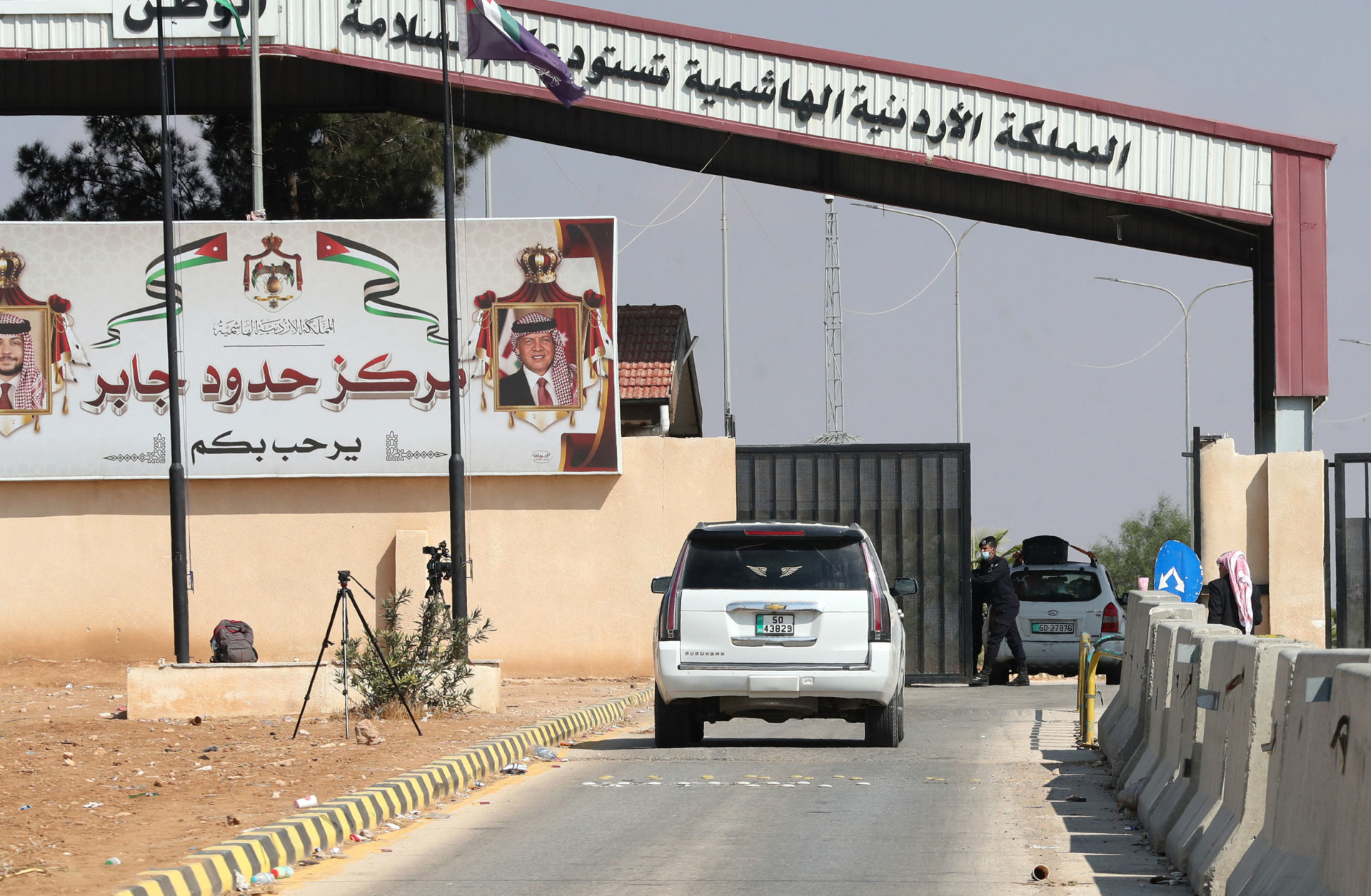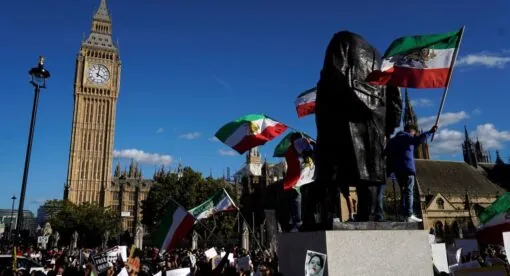Since the beginning of the Syrian civil war, relations between the Hashemite Kingdom of Jordan and its northern neighbor have been fraught, but recent events have caused Amman to rethink its approach to the regime of President Bashar al-Assad.
Over the past several months, U.S. President Joe Biden’s administration has been reviewing its Syria policy. While Washington does not consider Syria a top diplomatic priority, preferring instead to shift its focus to great-power competition in Europe and the Asia-Pacific region, it seems determined to maintain its position to isolate Syrian President Bashar al-Assad. The administration appears to believe that any final political settlement in Syria would further empower Assad, something it would not support. Yet it also still does not want to remain involved in a regional war whose end is not in sight, especially given U.S. public opposition to continued engagement in foreign military conflicts. For this reason, any relative stability in Syria is in Washington’s interests.
While Washington has had no influence over Assad, the Hashemite Kingdom of Jordan is one country the U.S. can work with regarding the Syrian crisis. Jordan, a geographically small country that shares a border with Syria, seeks to preserve its ties with neighboring countries and to maintain a positive global image. It also seems to present itself to world powers as a country that can be relied on for stability and security, with the aim of playing a key diplomatic role in the region.
Jordan’s approach to the Syrian civil war has been guided chiefly by its concern over the impact the crisis has had on the kingdom, including refugees and threats on its border. Amman was initially seen as part of the camp against Assad, and as a result its relations with Damascus soured. Recent months, however, have shown signs of increased rapprochement between the two countries. Most notably, Jordan’s King Abdullah II spoke with Assad on Oct. 3 for the first time since the war started. Amman’s willingness to strengthen relations with Damascus can be seen in the context of Jordanian-Egyptian efforts to bring Syria back into the Arab League after its suspension from the bloc in 2011 and other Arab states’ recent willingness to normalize ties with Assad.
In a July meeting with Biden in Washington, Abdullah proposed the idea of a task force focused on stability in Syria, involving several countries. With Assad unlikely to be ousted anytime soon, Amman’s formula is said to be seeking compromises from both Moscow and Damascus on a number of issues that are important to those states, such as Iran’s arms, in exchange for lessening the imposed pressures on Assad. Abdullah has since met with Russian President Vladimir Putin to push the proposal.
A Wary Stance
Historically, Jordan and Syria have had a difficult relationship, especially during the reigns of King Hussein and President Hafez al-Assad. Bilateral ties improved after King Abdullah II and President Bashar al-Assad took their respective offices roughly two decades ago. Following the outbreak of the ongoing Syrian conflict, however, Amman-Damascus ties worsened again. Initially, King Abdullah II was the first Arab leader who called on Assad to resign. Jordan was pressured by Saudi Arabia to “open a supply route” to transfer arms to “moderate” members of the Syrian opposition, and it hosted a CIA-led military operations center to support “vetted” rebels. Meanwhile, it called for a political solution to the crisis and kept up diplomatic relations with Damascus.
As Syria’s civil war has continued, Jordan’s position against Assad has gradually changed. Its realization that Assad will likely stay in power required a shift in Jordan’s dealing with the crisis. Amman also was frustrated by Washington’s handling of the conflict – it wanted a decisive ending to the war, and when that did not happen, it raised concerns about the consequences of continuing its stance against Assad.
President Barack Obama famously referred to the regime’s use of chemical weapons as a “red line,” but his administration failed to decisively act when Assad crossed that line. Obama’s caution stemmed from his desire to reshape America’s involvement in the region after President George W. Bush’s invasion of Iraq, but Jordan likely expected more from Washington. “The Jordanians wanted the U.S. to be more aggressive and at times to use them more aggressively,” said Anne W. Patterson, a former assistant secretary of state for Near Eastern affairs. “Obama’s views on getting more involved in Syria were well known: He wasn’t going to get the U.S. involved in another war in the Middle East. But there was never the slightest doubt about the U.S. commitment to Jordanian security.”
The move may have even come as a surprise to Jordan. “There was at least some buzz among policy makers in the kingdom that Jordan had been prepared for almost anything when the Obama administration put out its ‘red line’ for Syria, and then Amman seemed shocked that the U.S. didn’t really follow through,” said Curtis Ryan, professor of political science at Appalachian State University and author of “Jordan and the Arab Uprisings: Regime Survival and Politics Beyond the State.” “That alone may have triggered a shift to a more balanced and pragmatic approach from Jordan, pressed between its various allies (the U.S., Saudi Arabia) but wanting not to get Jordan itself dragged into the war.”
The threat posed by the Islamic State in Iraq and Syria (ISIS) also shifted Amman priorities. Most notably, ISIS captured and burned alive Jordanian pilot Muath al-Kasasbeh in early 2015, sparking outrage throughout the kingdom and likely contributing to Jordan’s shift to counterterrorism.
The Russian intervention in Syria also was a changemaker in the conflict. Moscow’s military involvement seems to have reinforced Amman’s belief that Assad would remain in power. Jordan would have not been able to stand up against Russia’s campaign, and Washington’s hands-off approach likely made it even more difficult for Jordan. Thus, Amman seemingly felt it had little choice but to voice support for Russia’s military campaign. This endorsement was not received happily in the United States. “I think there was some annoyance, but it wasn’t major. And every other country in the region was rushing to Moscow, too, including the Saudis and the Israelis,” Patterson said. “My recollection is that the King took more heat on reaching out to Russia from the Hill than he did from the administration, but his interactions with the Hill are probably on the public record.”
Jordan’s support for Russia’s intervention does not imply that the two countries agree on all matters regarding the Syrian crisis. In February press conference with his Jordanian counterpart Ayman Safadi, for instance, Russian Foreign Minister Sergei Lavrov called on expelling members of the Syria Civil Defense, commonly known as the White Helmets, from the kingdom. Safadi said that in 2018 his country responded to a request from a number of countries to permit the entry of several hundred Syrians who were working within the White Helmets per a written agreement in preparation for their resettlement in these countries. Safadi also said most of them were resettled and there are only less than 50 people who are not refugees, but in transit, adding that his country is in contact with those countries to complete the resettlement process. While the presence of White Helmet members in Jordan is not something Russia is happy about, Moscow still cooperates more closely with Amman on the Syrian crisis than with most other countries in the region.
In this context, it is easy to see why Jordan gradually shifted its stance on the conflict. While Jordan has recently been intensifying its efforts to find a political solution to the Syrian crisis, these factors illuminate the reasoning behind Jordan’s approach today, and some of them continue to play a role in guiding Jordanian policy.
Abdulaziz Kilani is a British-Arab writer who focuses on the Middle East and North Africa. Kilani’s work has been published in Arabic-language media outlets such as Alrai newspaper (Jordan), Ammon News (Jordan), Al Jazirah newspaper (Saudi Arabia), Alanbaa Alsiyasia newspaper (Morocco), Donia Al-Watan (Palestine). He has also published in The American Conservative, Responsible Statecraft, Lobelog, Middle East Monitor, Lobelog, TRT World, The Globe Post and Inside Arabia. He tweets as @AZ_Kilani.
The views expressed in this article are those of the author and not an official policy or position of the New Lines Institute.







